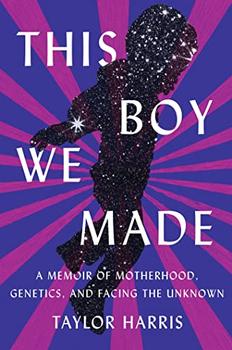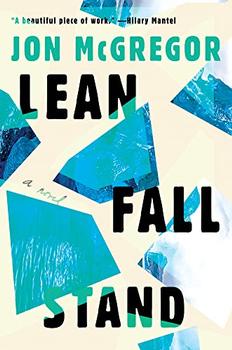Summary | Excerpt | Reading Guide | Reviews | Beyond the book | Read-Alikes | Genres & Themes | Author Bio

A Memoir of Love, Faith, and Resilience
by Allison PatakiA deeply moving memoir about a young couple whose lives were changed in the blink of an eye, and the love that helped them rewrite their future.
Five months pregnant, on a flight to their "babymoon," Allison Pataki turned to her husband when he asked if his eye looked strange and watched him suddenly lose consciousness. After an emergency landing, she discovered that Dave - a healthy thirty-year-old athlete and surgical resident - had suffered a rare and life-threatening stroke. Next thing Allison knew, she was sitting alone in the ER in Fargo, North Dakota, waiting to hear if her husband would survive the night.
When Dave woke up, he could not carry memories from hour to hour, much less from one day to the next. Allison had lost the Dave she knew and loved when he lost consciousness on the plane. Within a few months, she found herself caring for both a newborn and a sick husband, struggling with the fear of what was to come.
As a way to make sense of the pain and chaos of their new reality, Allison started to write daily letters to Dave. Not only would she work to make sense of the unfathomable experiences unfolding around her, but her letters would provide Dave with the memories he could not make on his own. She was writing to preserve their past, protect their present, and fight for their future. Those letters became the foundation of this beautiful, intimate memoir. And in the process, she fell in love with her husband all over again.
This is a manifesto for living, an ultimately uplifting story about the transformative power of faith and resilience. It's a tale of a man's turbulent road to recovery, the shifting nature of marriage, and the struggle of loving through pain and finding joy in the broken places.
[Pataki] has good control of her story lines in this memoir, and successfully recreates the swirl of emotions she felt after Dave's stroke and the birth of their daughter, Lilly. However, she doesn't completely avoid clichés: there are a few instances each of "ups and downs" and "new normal." I also found her descriptions of Dave to be implausibly glowing. What I most appreciated, though, was Pataki's insistence that she was never especially strong or brave; she just dealt with these circumstances because she had no choice. Hers is a relatable story of surviving the worst life can throw at you and finding the beauty in it...continued
Full Review
 (812 words)
(812 words)
(Reviewed by Rebecca Foster).
Most strokes are caused by blockages in blood vessels, either directly in the brain or traveling from elsewhere in the body to the brain; these are referred to as ischemic strokes. A minority are caused by ruptured blood vessels (hemorrhagic strokes). It is important for doctors to identify the specific type of stroke that a patient has suffered before deciding on a treatment course as the treatment for ischemic strokes generally focuses on thinning the blood which would make a hemorrhagic stroke worse.
All strokes cut off blood supply and thus oxygen to the brain, causing some brain cells to die and leading to memory loss and numbness. Confusion, difficulty speaking, and partial paralysis can also result. The "FAST test" is a quick way ...

If you liked Beauty in the Broken Places, try these:

by Taylor Harris
Published 2023
A Black mother bumps up against the limits of everything she thought she believed - about science and medicine, about motherhood, and about her faith - in search of the truth about her son.

by Jon McGregor
Published 2022
A thrilling and propulsive novel of an Antarctica expedition gone wrong and its far-reaching consequences for the explorers and their families "leaves the reader moved and subtly changed, as if she had become part of the story" (Hilary Mantel).
Fanaticism consists in redoubling your effort when you have forgotten your aim
Click Here to find out who said this, as well as discovering other famous literary quotes!